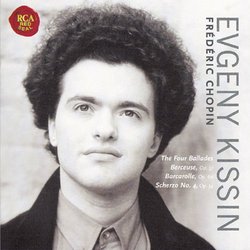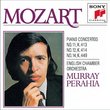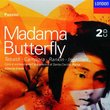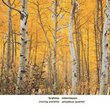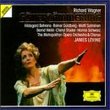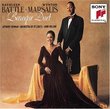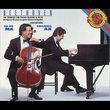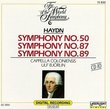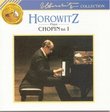Listen it without concept
Josef K. | Prague, Czech republic | 06/03/2005
(5 out of 5 stars)
"I don't like writings like this but i can't help myself after reading previous reviews to express my opinion here. First to be said is that I simply love Kissin's interpretation of Chopin. But why: it is absolutely free of any so called 'romantic interpretations' or skills how to perform this music. Kissin is playng his own way and if you've got your own concept of "how to play Chopin" before, you may have to get lost in his playing. But for me it's like adventure or experience follow his mind (& fingers) playing this amazing music. It is so modern! If you know Brad Mehldau quotations of Chopin, you have to see this is very similar to it. Of course, Mehldau's playng is full of rhythm, but there is the same point: beautiful music comming from the past, which can be really contemporary - through 'contemporary' playing of it. Well, Kissin sometimes acts like punk in this delightfull process, but his playing still offers the 'GOING THERE AND BACK AGAIN' experience.
So please listen it carefully and (if possible), through away all your concepts before experience this music."
More reflective, less impetuous, still great
Santa Fe Listener | Santa Fe, NM USA | 10/31/2005
(5 out of 5 stars)
"Among modern versions, I think only personal preference divides Kissin's Chopin Ballades from those by Pollini, Ax, and Zimerman, although others would also add Perahia to the list (he's too tame and correct for me). Kissin was 27 when this CD came out, but his early virtuosic impetuosity--as evidenced in his 1993 Carnegie Hall Chopin recital, also on RCA--has been replaced with reflectiveness. In fact these are slower than average Ballades, a full minute slower in each one than Pollini.
Kissin uses this extra room to ruminate, and luckily his poetic nuances are sensitive and convincing. When a blast of virtuosity is called for, he certainly supplies it, but mercurial fleetness isn't much in evidence. The Gramophone went into raptures over this CD, and I did too when I first heard it. The approach is large-scaled, the piano is a fine one and well recorded, and there is every evidence of Kissin's mastery.
On relistening, though, I wish Kissin had been less deliberate. Ax shows more spontaneous passion, Pollini more intense propulsiveness and virtuosic elan. This is sitll a superlative example of how well Kissin plays Chopin and always has, ever since he was ten or twelve. Highly recommended."
